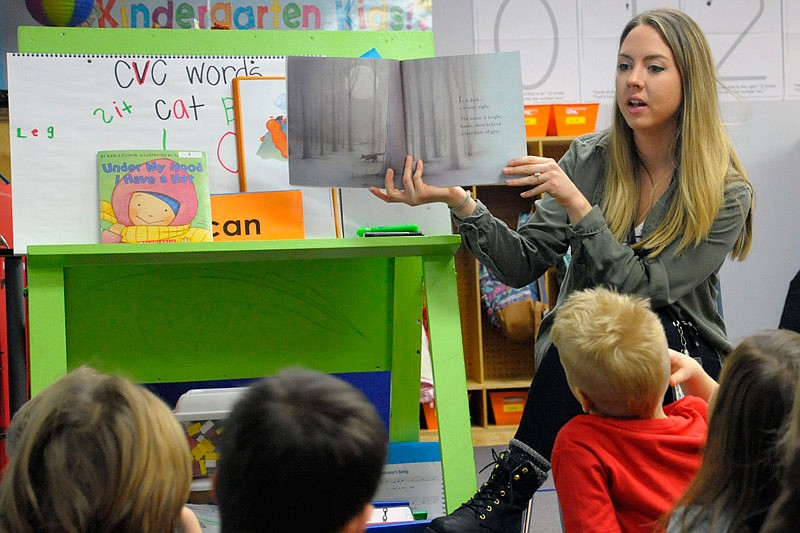The first four years of a teacher's career are the hardest. And turnover is 40 percent more likely.
"It gets easier after that," said California Schools Superintendent Dwight Sanders. "It's critical we provide what new teachers need."
To provide greater support for the fresh-out-of-college educators, the California Schools not only have followed the new directives by the Missouri Department of Elementary and Second Education but have taken it a step further.
In 2011, Missouri declared its goal to be in the Top 10 states for education by 2020. The first step toward that goal is placing effective educators in every classroom, said DESE spokesman Sarah Potter.
The focus on first-year teachers "is part of a much larger effort to improve the teaching field as a state," Potter said.
Mentoring and extra professional development are keys to helping first-year teachers.
Informal mentoring has been in place at most schools for some time. At California Elementary School, mentors are paired with their first-year mentees for two years. Veteran teachers new to the district also receive a formal mentor.
Nine of the 10 first-year teachers to the district this year are at the elementary school. So, the school year began with a workshop just for the new teachers, said Principal Gary Baker.
Each month, all of the new teachers attend a New Educators Encouragement and Direction Support (NEEDS) meeting, where they earn the extra required professional development hours as well as have a place to discuss the struggles and successes they may be facing for the first time.
"We have some rock star teachers who would blow the socks off anyone who would watch them," Baker said. "It's powerful to have a coworker coach you and give a different perspective."
The new teachers also have grade-level teams as a resource, as well as daily principal observations for immediate feedback.
A major component is the class-time observation, both mentor of mentee and mentee of veteran teachers across the district.
"This is a good transition, because we're still learning," said first-year, kindergarten teacher Bret Medlin.
To that end, the district invested in a full-time substitute, who makes scheduling these hours easier for everyone, Baker said.
The full-time substitute gets to know each classroom teacher's style and provides better continuity for student learning, he said.
"It speaks volumes to have a certified teacher to step in and fill the role," Baker said. "It's a luxury we haven't had in the past."
Through observations, the new teachers learn new styles for instruction, classroom management and time management.
"We have multiple instructional styles within our building, not one is greater than another," Baker said.
Mentors say they make a commitment to the new teachers to help them feel comfortable and be available for their questions.
Some of the issues that first-year teachers struggle with include behavior management, applying data information, dealing with parent-teacher conferences, flexibility and balancing personal time.
Veteran teachers, like kindergarten teacher Jill Kirksey, still struggle, too, she said. That is an important lesson for the new teachers to learn.
"We share successes and weaknesses," Kirksey said.
Amy Howard, veteran second-grade teacher, added that the sharing can be a two-way street.
"They may have new ideas or innovations we, who have not been in school for awhile, might not know about," Howard said.
The literature and checklists provides by DESE help facilitate the mentor-mentee communication at times.
"Sometimes there are things we just take for granted," Howard said.
Ultimately, the focus is on the students and helping them succeed, she noted.
"Investing time in helping another teacher, is like investing in our kids," Howard said.
Research agrees, first-year teachers should be treated differently than those experienced in the classroom, Potter said.
"If I didn't have you'all, working here wouldn't be as enjoyable," Medlin said. "It means a lot having someone to go to right down the hall."
The observations, mentoring and team meetings also help build a community within the walls.
That in-turn provides a better learning environment for the students, teachers agreed.
"We want students to see our teachers' joy and passion more than anything else," Baker said. "Kids are receptive to how the adults around them feel."

